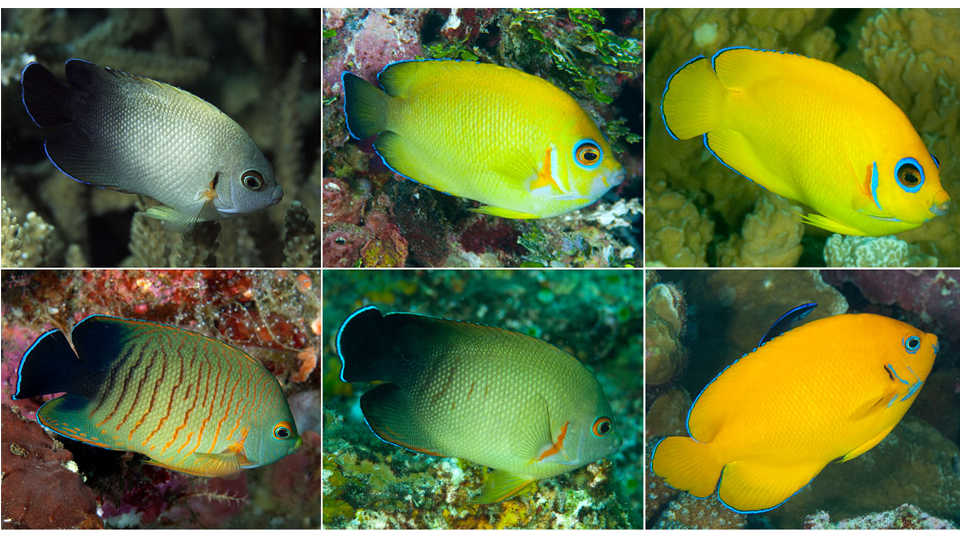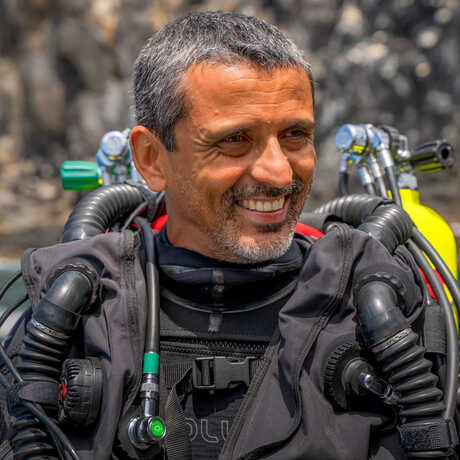The Fish Speciation Genome Project (P. I.: Iria Fernandez-Silva) seeks to address key evolutionary questions pertaining to the evolution of reef fishes.
In traditional speciation models geographic isolation is a prerequisite for the evolution of reproductive barriers and species boundaries. However, coral reef fishes and other marine organisms defy this view, because geographic barriers in the oceans are scarce and their initial life stages (eggs and larvae) can drift with oceanic currents over vast geographic areas. Yet, coral reefs are incredibly diverse and harbor over 25% of the marine species.
Our work is a multidisciplinary approach to investigate the genomic architecture of lineage divergence and the role of gene flow in speciation. We also aim to investigate the prevalence of hybridization and genomic introgression in coral reef fishes and its consequences for the calibration of molecular clocks and phylogeographic inference. The recent discovery of two hybrid zones in the tropical Indo-Pacific highlights the need for a thorough examination of reticulate evolution in this group.
Centropyge angelfishes
We are combining ecological and genomic data from Indo-Pacific pygmy angelfishes of the Centropyge flavissima complex: C. flavissima, C. vrolikii, and C. eibli.
Species in this complex are delineated by color and have overlapping geographic distribution. Phylogenetic analyses reveal three deep mtDNA lineages that conform not to species designation, but to geographic regions, highlighting the role of introgression in the evolution of this group. Where the species ranges overlap, hybrids with intermediate coloration define two hybrid zones.
The comparison of genomes of pygmy angelfishes that are only distinguishable in the base of color and hybrids that display a range of intermediate colorations will also provide insights into the genetic control of this trait, for which nothing is virtually known, in spite of its prominent role in the diversification of reef fishes.




